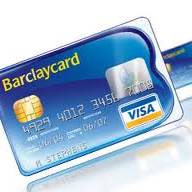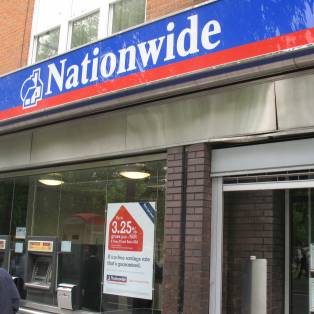 Have you been rate-jacked? Credit card customers across the UK have been receiving letters hiking their APRs by up to 10%.
Have you been rate-jacked? Credit card customers across the UK have been receiving letters hiking their APRs by up to 10%.
This step-by-step guide with free template letters shows you how to deploy hidden rules to reject any rate rises.
Step by step guide
Also See: Rate Jacking Successes/Failures and Rate Jacking Discussion
What is rate-jacking?
The slap as letters hit the mat is nothing compared to the pain of their contents. For the past few years people across the country have been receiving the depressing news their credit and store card interest rates are rising, sometimes by up to 10%.
These massive interest hikes from companies like Amex, Barclaycard and MBNA are what we call ‘rate-jacking' – as they're hijacking accounts to irresponsibly boost the costs – blighting people's ability to manage their debts. Yet crucially these aren't across the board increases…
It's all about lenders' rate-for-risk pricing policies
This is where the amount they charge depends on customers' Credit Ratings, yet outrageously it can mean those who've always repaid on time or been generally good customers, suddenly face being penalised with hideous rates.
Why's it happening?
While prior to the recession lenders salivated at sticking their cards in anyone's hands, regardless of affordability, now the lending noose's tightening, they're much more picky.
So customers who they wouldn't choose to lend to now, even if they're well behaved, can see rates ROCKET.
While for new customers this simply means rejection, card companies are now targeting existing customers who no longer look desirable too – whether they've been poor payers or not. The shifting sands of credit desirability may mean they take action.
After all boosting interest rates is a win-win for lenders, as it encourages those who can, to ditch and switch elsewhere (see below) and those who can't need to pay a huge amount more, helping offset any bad debts and boost profits.
So paradoxically in the name of responsible lending we're seeing lenders put rates up for those they consider a bad risk. That isn't responsible, it's greedy and dangerous, it makes people LESS not more likely to be able to afford to repay - proving the old adage that banks are institutions that'll lend you an umbrella when the sun's shining but want it back when it rains.
Have you been rate-jacked?
It's becoming increasingly prevalent across the board. Here are a few examples from the MSE forums:
It keeps going up and up...
MoneySaver Milkymoo22 echoes a common feeling, "I took out an Egg card in 2002 but last April they informed me my rate was due to rise to 21% from 16% so I complained.
They said the rise was due to my credit file status following new credit searches. Now I've just received an email to say they're hiking my rate to 26%! I've not spent on the card since the first hike, my sole intention is to pay it off.
Read more Rate Jacking examples
From 0% to 31% in one fell swoop...
MoneySaver Deth999, says, "I stupidly ran up a £10,000 debt with MBNA. I was on a promo interest rate keeping the payments down. I lost my job and was out of work for 3 months, during which I missed one payment and forfeited my promotional rate. They've now put my interest rate to 31%.
"I called to explain that I'm now employed again and will do everything I can to repay my debt; but they're leaving me on the 30% interest rate, and want £700.00 before they'll discuss anything further."
From 19.9% to 26.9% with a simple letter...
MoneySaver Sonalita's another who finds her interest rate increased with her debt, "Egg sent me a mail yesterday stating that from next month my interest rate is increasing from 19.9% to a SCANDOLOUS 26.9%.
I have quite a high balance (long story, don't criticise!) so this just seems to me to be them being very greedy and grabbing money from high balance customers who are perhaps not in a position to do very much about it.
Been hit by Rate Jacking? Please feedback your experiences
Step-by-Step Guide to Beat Rate Jacking
First call up and politely request it doesn't increase your rate. It can work, though it's rare. Of course if you have any savings, simply repaying the debt is usually the best plan (see the Repay Debt with Savings? guide), if not follow the steps below.
Step 1:
Ditch and Switch
If possible simply shift your existing debt to a new card at the super-cheap Balance Transfer rate – which is both low cost and gives rate certainty.
It's possible to move debt to interest free deals for over a year or lock-in a long term rate of around 7%. As these are likely to be far cheaper than what you're paying now, it's the first move. However, don't try this if:
-
You've a mid to poor credit history
To get a decent deal you'll need a good credit score (see the Boost my Credit Score guide). This is likely to mean you've a decent income, have never defaulted and have few or no late payments.
If not, or you usually get turned down for new credit, think twice before applying. There's no point if you know you'll be turned down, as it just adds another footprint to your credit file.
-
You're struggling to cover your basic outgoings
If you can't make your minimum repayments as well as rent/mortgage and basic bills, by far the most important thing to do is get non-profit Debt Counselling help.
The Best Balance Transfer Deals…
If you do think you will be able to get a new cheap credit card then see the full guide including daily updated best buys for both 0% deals and longer term cheap debt...
Step 2:
Lose your 0% deal through late payment?

If you've a 0% promotional deal and make a late payment, some credit card companies e.g., MBNA usually instantly ditch the cheap deal, fine you £12, and jack you to the standard APR rate of 15% or more. Sometimes they will shift you to the standard rate AND then jack it too.
If that's why you're reading this guide, while shifting debts may be the quickest solution, do try to regain your 0% deal too. Call up the company politely to explain what's happened, tell it you're a good customer and see if it will reinstate it – this does sometimes work.
-
If it returns you to the promo deal
Immediately set up a direct debit to repay every month. Even if this is for the minimum repayment it means you'll never be late again (and rarely will you be able to reinstate it twice) but then always try and pay more manually on top, see the Danger Minimum Repayments guide.
-
If it refuses to budge
If the card company refuses to budge, then sadly there are few rules as technically you breached its terms and conditions – so jump to Step 4. However if it didn't just drop your promotional rate, but also increased your standard APR, it's worth reading Step 3.
Step 3:
Force it to halt the increase

There is now an option available where you can force it to halt the increase, but you first need to know the background.
Most credit cards are variable rate which means lenders can shift interest rates both with movements of the Bank of England base rate and willy-nilly for their own competitive advantages.
However in late 2008, the government held a credit card summit, and warned lenders it'd ask for an OFT investigation if it didn't commit to treating customers fairly. On the back of this a set of principles came into force on 1 Jan 2009, which were slightly amended at the start of 2011 by further government input.
In many ways they are tepid, though crucially they include a guarantee to freeze rate increases. Below I've included the full published text (read the direct source on the UK Cards Association website and the amendments in the Lending Code 2011 addendum) and our plain English translation...
No rate increases in first year
"Provided a customer manages his/her account in accordance with the product's terms and conditions we will not: Increase interest rates within the first twelve months of a customer having a credit/store card."
Translation: Lenders agreed not to increase interest rates within 12 months of a credit or store card being taken out. Sadly this only applies to standard APRs not losing 0% or other promotional rates.
Any catches? Do note the disappointing ‘providing they've met the t&cs;' provision which means any minor infraction, even a day's late payment may kaibosh this promise; that's why I said this rule is tepid.
Even so unless you've made a substantial breach of its terms it's worth calling, quoting these rules and trying to invoke the spirit.
Only one rate rise every six months
Provided a customer manages his/her account in accordance with the product's terms and conditions we will not: Increase interest rates more often than six monthly beyond this period.
Translation: After the first year, rates shouldn't be increased more than every six months.
Any catches? Again though, note the ‘providing they've met the t&cs;' get-out clause which means even a day's late payment could stop you implementing it.
Explain why the APR was increased
"If the customer asks, we will ensure that our staff are able to provide the customer with an explanation as to why an interest rate may have been increased."
Translation: If you ask you should receive an explanation of exactly why you've been rate jacked.
Any catches? The worry here though is it will simply say "because of your credit score" which, as all credit scoring systems are different, (see the Credit Rating guide) is mostly meaningless.
I put this to the UK Cards Association, the body which negotiated with the Government on the card companies behalf, its opinion was:
"Just saying this is because of your credit score isn't the best explanation, but we don't formally have a view. The role of monitoring this is with the Banking Code Standards Board. It's taken a dim view in the past of customers not being given sufficient explanation of why decisions have been made about them."
So I put it to the Banking Code Standards Board (BCSB) and it said:
"The 'it's due to your credit score' is fairly minimal, but could suffice as it indicates it's not from an across the board re-pricing. If not, it is open to the customer to ask for a fuller explanation, then we'd expect the staff (or supervisor) to explain about the role of credit reference agencies, that the customer can obtain a copy of their CRA file and how, and give examples of things that can affect someone's credit score."
In my view this isn't good enough – yet BCSB is the banks' own self-regulatory code – so it's not too surprising. I don't believe the above explanation isn't satisfactory or reasonable as it means nothing – and I would certainly advocate continuing to pursue a complaint to the Ombudsman which is likely to take a more robust view.
Ultimately there are no hard rules on what is appropriate, but certainly if you can only get a woolly response, continue your complaint up to the Ombudsman – see below.
No increases for those with debt problems
"We will not increase interest rates in the following circumstances. Where a customer has failed to make the minimum contractual payment requested on the last two or more consecutive monthly statements; or Where an agreed repayment plan is in place in respect of the account; or Where we have been formally notified by a not-for-profit debt advice agency that the customer is in serious discussion with it."
Translation: They won't increase your rate if you've fallen behind on payments by two months or more, or those who have sought help from a debt advice agency. So the crucial message is...
If you're in trouble, seek help from a non-profit debt counselling agency immediately to prevent the rate rising.
For more information on these agencies see the debt counselling section of the debt help guide.
They will give thirty days' notice
"We will always give a customer at least 30 days notice of an increase in interest rates, so that the customer can make other arrangements, should they so wish."
Translation: This one's pretty self explanatory.
You can reject in 60 days and repay current rates
"These will always include the option to close the account and repay the remaining balance at the existing rate of interest, within a reasonable period, having regard to the existing level of minimum payments and the customer's financial situation. Where we offer alternative lending products, we may also provide the option to transfer the balance to such a product at the existing (or lower) interest rate."
What does this mean? The phrasing of this is slightly confusing; and when they write to you indicating this it may look like you need to pay it all there and then if you close the account. This is not the case, in fact...

In effect it means you will be given 60 days (thanks to the changes to the Lending Code) to close down the ability to borrow any more money, but still make repayments of the existing debt over time at the current CHEAPER rate.
The rules state you will get a 'reasonable' time to repay it – which is rather vague but will usually be defined by individual circumstances.
So to help I asked the Financial Ombudsman Service its thoughts:
"If a consumer has been repaying the minimum amount historically on the card, it may well be reasonable for them to continue to be allowed to pay the minimum rate. We have not had to issue an ombudsman's decision on this yet and we would, of course, consider the individual circumstances of the case before doing so."
And the UK Cards Association's (the credit card body):
"What we've not done is define reasonable but if, for example, I'd only been making the minimum repayment (because that's all I can afford) on a £4,000 outstanding balance, I wouldn't expect my bank to turn round and expect me to pay back in 3 months. So even historically if I'd missed a minimum repayment, I would still expect to be given the same terms as others to repay in a reasonable period."
Therefore if you were previously paying the minimum repayments, it is likely to be possible to keep doing so, though if you were paying more previously and decided to start paying less as a result this may be deemed 'unreasonable'.
It's also worth noting there's no ‘you mustn't have broken the t&cs; rules' get out for lenders here, so even if you have missed or made late payments this should still be allowed.
Any catches? Do ensure you've got a direct debit in place to make payments each month on time (you can always manually pay more), failing to do that could kaibosh the whole thing.
Remember this means you are closing down your ability to borrow more. So ensure you have the financial facilities to function without - though relying on credit isn't a good sign (see the Debt Help guide).
While closing an account down shouldn't impact your credit files (see the Credit Rating guide) as other lenders won't know about it – the lender itself will be able to record it on its internal files – which may make it less inclined to want to deal with you again.
The credit card industry also produces a factsheet on these rules – though do watch out for its spin.
What to do if a company breaks these rules...
While not law, so it's questionable whether you could challenge a breach of them in court, these rules now form part of an industry agreed code of practice.

And that's important, as it means the Financial Ombudsman Service (FOS) will use it as part of making a decision on whether you've been treated fairly or not.
Therefore if you think your card company's fallen foul of these rules do the following…
1. Make a quick call
To start with try calling customer services, and politely ask for the decision to be reviewed. If you're not getting anywhere then try specifically saying you're calling about...
"The Dec 2008, UK Cards Association statement of principles on repricing"
Then quote the exact rule from the list above. Of course it is perfectly possible the call centre operative won't have heard of this, yet quoting the rules often makes them take you more seriously, meaning you'll be escalated to a supervisor, who could adopt the ‘less hassle' approach of sorting it.
And just for background, The UK Cards Association is the trade body that agreed these principles with the government on behalf of the credit card industry.
2. Write a formal letter of complaint
If that doesn't work, you must write a formal letter of complaint about the breach of the rules, if not you can't go to the Ombudsman, and request your rate isn't increased. To make it easy add your details into the template letter we've drafted for you.
3. Complain to the Ombudsman
If the company rejects your complaint, fill out the Financial Ombudsman's Service (FOS) complaint form, which is completely free to do. Simply quote the rules again and which the company has broken on your form. Don't worry, you will never need to appear in person, it's just a way of complaining.
The Ombudsman is independent and will put your points to the company – which must then either choose to settle or to argue the point with the Ombudsman.
It's also worth reading the next section as you may find other points to add into your complaint if you've been mistreated another way.
Read or report successes/failures in the
Rate jacking successes forum discussion
Step 4.
Has it behaved unfairly?
Even if lenders haven't broken the code of practice, if they've behaved unfairly you still have a right to be ‘treated fairly', though of course this is all a question of opinion.
Yet there are a few things to understand…
-
This is a negotiation
Don't think about hard and fast rules form now on, there aren't any. The aim here is to effectively negotiate or pressurise the lender into allowing you to keep your rate. Merely the process of making a formal complaint may do the job.
-
Ombudsman cases are often settled not decided
Many cases that go to the Ombudsman don't actually get a decision. Instead after you've complained the company is contacted and asked to explain why it has behaved in a certain way.
This can be expensive for them, runs the risk of setting a precedent, or the need to reveal confidential information – so at this point it can be cheaper for them to just settle so you get your result by default.
And there's a very specific piece of info those who've been rate-jacked can use for this...
Card companies don't want to reveal exact details of how they make their rate for risk decisions
Credit scoring is a secretive process that lenders jealously guard. Therefore it is possible when you demand an explanation you won't get much more than a “you failed the credit score”.
Been turned down? How to turn it to your advantage
Credit scoring is a secretive process that lenders jealously guard. Therefore it is possible when you demand an explanation you won't get much more than a “you failed the credit score”.
However if you've been a good customer, and made few or no late payments, under the rules you've a right to know how the decision was made and should push this including going to the Ombudsman.
In the past the Ombudsman has reported that when it's asked companies for their lending criteria, companies have simply settled instead of providing it.
And that's the aim here – to use this to simply push the companies to not increase your rate as “it's not worth it”.
The Ombudsman's view...
To help with the exact rules on fairness I put a few general scenarios to the Financial Ombudsman Service (FOS). Click them for the answers.
"Is it fair to have your rate pushed up, even if you've not missed any payments, and been a good customer? "
A consumer could make this argument, but generally as long as the credit card company was adhering to the new principles it'd be up to the consumer to decide whether they wanted to pay off their debt at the existing rate or continue with the credit card company on a higher interest rate.
"If you ask the company to explain why the APR has gone up, and its answer is 'because of your credit score' is that acceptable?"
"Consumers can ask firms to provide more detail and certainly if the firm had put up the interest rate they may have cause to request further explanation. In these circumstances, if the ombudsman service was investigating a case we would expect the firm to provide more detail instead of just referring to the consumer's credit score.
"Missing payments isn't the only reason people fail credit checks though. If someone was near their minimum repayments and using cards to pay utility bills or other basic outgoings this could be seen as a trigger.
"As you know, we primarily look at cases where consumers have lost out financially as a result of something a firm has done - generally, if a consumer has a right to pay off the credit at their existing rate of interest they may not necessarily be disadvantaged financially as a result of the firm's actions."
"Rate increases must be justified under the general guidance, but what does justified mean?"
"Unfortunately, as we have not yet seen cases coming through on this it would be difficult to make a statement about what would or wouldn't be justified."
Martin Note: This is actually quite useful, it means there are no hard or fast rules as yet, so certainly it wouldn't be seen as vexatious to put in a complaint if you believe the rise isn't justified.
"Is it fair for overdraft and credit cards limits to be reduced BELOW the amount people currently owe"
"We've only seen very occasional complaints like this. It would depend on the circumstances e.g. had proper notice been given? How much had the credit limit been reduced by? Generally, we'd expect credit card companies to reduce a credit limit in increments, giving notice to the consumer of what they are intending to do.
"We would not generally consider it fair, if a consumer was using a £1,000 credit limit, for a firm to reduce it in one step to £500 - because this would mean a consumer would need to suddenly find £500 to prevent them being from being subject to charges. If a consumer in these circumstances, found that they were getting charges they may well have cause for complaint."
"If you ask the company to explain why the APR has gone up, and its answer is 'because of your credit score' is that acceptable?"
"Consumers can ask firms to provide more detail and certainly if the firm had put up the interest rate they may have cause to request further explanation. In these circumstances, if the ombudsman service was investigating a case we would expect the firm to provide more detail instead of just referring to the consumer's credit score.
"Missing payments isn't the only reason people fail credit checks though. If someone was near their minimum repayments and using cards to pay utility bills or other basic outgoings this could be seen as a trigger.
"As you know, we primarily look at cases where consumers have lost out financially as a result of something a firm has done - generally, if a consumer has a right to pay off the credit at their existing rate of interest they may not necessarily be disadvantaged financially as a result of the firm's actions."
"If you ask the company to explain why the APR has gone up, and its answer is 'because of your credit score' is that acceptable?"
"Consumers can ask firms to provide more detail and certainly if the firm had put up the interest rate they may have cause to request further explanation. In these circumstances, if the ombudsman service was investigating a case we would expect the firm to provide more detail instead of just referring to the consumer's credit score.
"Missing payments isn't the only reason people fail credit checks though. If someone was near their minimum repayments and using cards to pay utility bills or other basic outgoings this could be seen as a trigger.
"As you know, we primarily look at cases where consumers have lost out financially as a result of something a firm has done - generally, if a consumer has a right to pay off the credit at their existing rate of interest they may not necessarily be disadvantaged financially as a result of the firm's actions."
It's important to remember the Ombudsman makes its decisions based on the law of the land, any regulator's rules plus what is seen as good industry practice (see the Financial Ombudsman guide for more info). So if you think you've been treated unfairly why not tell a friend and see if they agree, if so then there's no harm taking it up.
Read more details on how to complain.
How to complain
If you think a company has treated you unfairly, follow the following steps…
-
First make a quick call
To start with try calling customer services, and politely ask for the decision to be reviewed. Explain why you think you've been unfairly treated, and ask that it reconsider. Inform it you will be taking it to the Ombudsman if they don't help – you may want to ask to speak to a supervisor as they have more discretion.
-
Write a formal letter of complaint
You must write a formal letter of complaint about the breach of the rules and request your rate isn't increased, if not you can't go to the Ombudsman. Keep it short and factual and justify why you think it is unfair.
-
Complain to the Ombudsman
If the company rejects your complaint, fill out the FOS's complaint form it's completely free to do. Write a concise factual letter explaining why you think you've been unfairly treated. Don't worry you will never need to appear in person.
The Ombudsman is independent and will put your points to the company – which must then either choose to settle or to argue the point and have it settled by the Ombudsman.
Step 5.
Seek debt help
If your rate's been pushed up and you're struggling, then it's important to get debt help. There's a full debt help guide which will take you through it step-by-step; yet if the new interest rate pushes you into financial hardship act quickly.
By seeking help from a non-profit debt counselling agency (see debt counselling info) you can actually prevent lenders from hiking your rates - as this is one of the key rules.



























